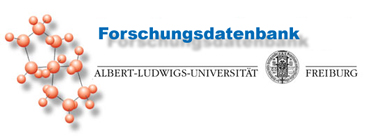|
|
Forschungsschwerpunkte
- Biotechnology:
In close cooperation with industrial partners we initiated functional genomics of Physcomitrella, identifying novel genes relevant to metabolic engineering and to abiotic stresses such as drought, salt and cold. Such moss genes are being directly transferred to crop plants to improve their performance.
Transgenic Physcomitrella can be grown photoautotrophically in bioreactors. We work on the production of pharmaceutically relevant proteins in such cultures in co-operation with the university spin-off company greenovation Biotech, Freiburg.
In addition to these successful industrial co-operations we are ready to establish new partnerships.
As a university group our work is primarily science-driven. However, we strongly feel that our basic work is paid by tax-money and we, therefore, have the responsibility to transfer applicable know-how swiftly to the market.
- Moss Systems Biology:
We are working on gene expression (transcripts, proteins, protein-modifications, metabolites, sub-cellular integration) in the bryophyte Physcomitrella patens (Hedw.) B.S.G. at different levels in correlation with phenotype analysis. Additionally, we employ comparative genomics approaches.
Our vision is to fully unravel the complex regulatory networks underlying these developmental decisions. This is a long-term goal, making it necessary to combine different levels of function, obtain quantitative biological data, preferably from the single cell level, model networks in the computer and make predictions for novel biological experiments.
Such a holistic strategy on plant development combines biology, tools for micro analysis, computational biology and modelling, and is called "Systems Biology".
- Abiotic stress:
The moss Physcomitrella patens displays a high degree of tolerance against a broad range of abiotic stresses. To identify genes involved in stress adaptation we focus on the isolation of stress-induced genes using a set of molecular techniques including Differential Display RT-PCR and cDNA microarrays. Functional analysis of those genes is performed by the generation of targeted knockout lines to reveal their specific role in the abitoc stress response. We have already identified genes which are essential for abiotic stress adaptation and which play crucial roles in stress-mediated signaling.
- Computational Biology:
We are interested in comparative genomics of plants, focussing on ortholog detection, molecular phylogeny, genome duplications and functional gene annotation.
In addition, we are part of an international consortium dealing with the assembly and annotation of the moss genome. We provide both knowledge from our transcriptome analyses (e.g., splice site detection and high quality functional gene annotation) and a genetic map based on SSR markers to the effort.
Our constantly refined work on the moss transcriptome is presented to the scientific community by a set of web interfaces via www.cosmoss.org.
- International Moss Stock Center:
We provide the facilities for an international moss stock center. In vitro cultivated plant material is stored in liquid nitrogen and will be available for the international research community. For Physcomitrella, 37 worldwide accessions are on-hand. Other moss species are available upon request.
- Molecular Farming:
We use Physcomitrella as a system for the production of complex biopharmaceuticals. The moss provides unique, beneficial features for transgenic protein production as photoautotrophic growth in bioreactors in strict biological containment, the possibility to secrete heterologous proteins into the surrounding medium, resulting in reduced downstream processing costs and posttranslational modifications of higher eukaryotes. Transient transfection procedures as well as vector sets for efficient expression and secretion of target proteins were established. Via the among plants uniquely efficient method of targeted gene knockouts the plant-specific protein glycosylation pattern of the moss was successfully humanised. The resulting moss strains provide a platform for the production of human-like glycoproteins.
- Proteomics:
In order to efficiently exploit the moss Physcomitrella patens as a model organism in the field of plant functional genomics, genomic approaches are complemented by analyses at the proteome level. Spanning the field from classical two-dimensional gel electrophoresis and liquid protein separation methods to advanced techniques like fluorescence resonance energy transfer (FRET) and tandem affinity purification our main interests and expertises lie in the fields of differential proteomics, analysis of post translational modifications and investigation of dynamic protein interaction networks.
- RNA interference:
RNA interference was shown to play important roles in posttranscriptional gene silencing as well as epigenetic control of gene expression in eukaryotes. To obtain information on specific RNAi pathways in Physcomitrella patens we initiated gene knockout approaches to disrupt major components of the microRNA processing machinery. To elucidate the microRNA inventory in Physcomitrella we generated a microRNA library and the identified microRNAs are used to predict their putative target genes and their corresponding precursors. To unravel the function of specific microRNAs we perform a targeted disruption of their precursors and generate RNAi-resistant mutant lines by modifying their specific binding sites present in their target mRNAs. The latter approach is facilitated by the possibility to perform allele replacements resulting in targeted mutations of single nucleotides.
|




